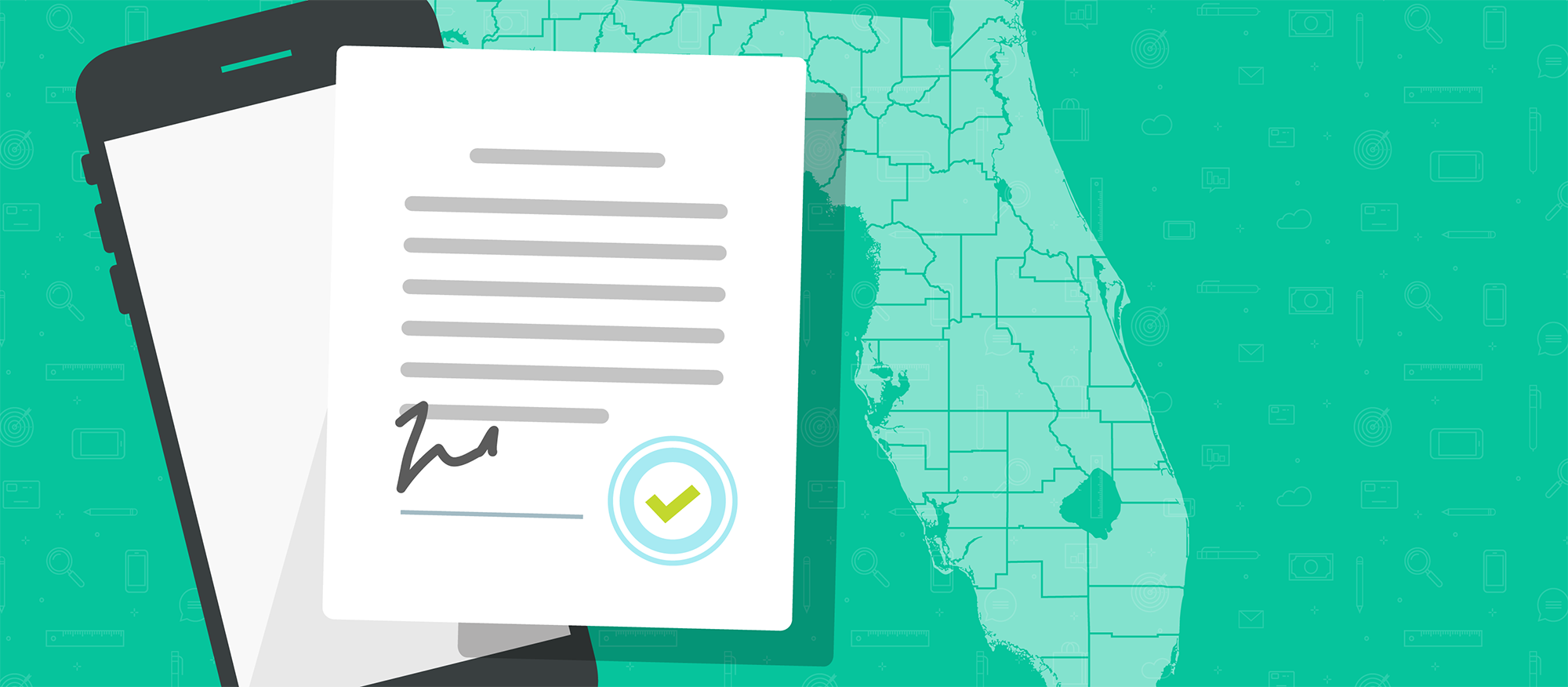What Marketers Need To Know About Florida’s “Mini-TCPA” Law
 On July 1, 2021, Florida’s new telemarketing bill went into effect. This bill amends the Florida Telemarketing Act (FTA) and the Florida Do Not Call Act in a number of ways, reinstating at the state level several provisions that were overturned in the federal Supreme Court’s April ruling in Facebook v. Duguid.
On July 1, 2021, Florida’s new telemarketing bill went into effect. This bill amends the Florida Telemarketing Act (FTA) and the Florida Do Not Call Act in a number of ways, reinstating at the state level several provisions that were overturned in the federal Supreme Court’s April ruling in Facebook v. Duguid.
If you’re wondering what all of that means for you and your business, you’re not alone.
In this post, we’ll cover some of the key takeaways from the new Florida bill, how it varies from the federal Telephone Consumer Protection Act (TCPA), and how to ensure your business is compliant under the Mini-TCPA through consent-based marketing.
What You Need to Know about Florida’s “Mini-TCPA”
You might have heard this new bill referred to as a “Mini-TCPA,” as it expands the provisions of the existing Florida legislation to function more like the TCPA than other state-level Do Not Call (DNC) laws.
The bill makes two significant amendments to Florida’s previous telemarketing laws: 1) a private right of action and 2) the requirement for prior express written consent if the call will be made using an automatic telephone dialing system (ATDS).
Let’s look at both of those in greater detail.
Private Right of Action Under Florida’s “Mini-TCPA”
The new bill includes a private right of action that allows aggrieved parties to petition a court to enjoin the violating party for actual damages or $500, whichever is greater. That amount is tripled if the violation in question is proven to have been willful or knowing.
In other words, consumers have the right to file a lawsuit against your business if they can prove that you violated Florida’s telemarketing laws.
ATDS and Prior Express Written Consent Under Florida’s “Mini-TCPA”
Unlike the TCPA’s new, narrower definition of an ATDS granted by the Facebook decision, the “Mini-TCPA” refers to them more broadly. Per the Florida Telephone Solicitation bill, Florida defines an ATDS only as “an automated machine to dial the recipient’s phone number, or [that] will play a recorded message upon connection with the recipient.”
Using this broad definition, the bill issues the requirement that all telephone solicitors using an ATDS must gain prior express written consent from the consumer.
The language here is similar to that used in the TCPA, however, because Florida defines an ATDS differently, businesses that have relaxed their practices for obtaining consent based on the Facebook decision may not be compliant under Florida’s new requirements.
Other Provisions Under Florida’s “Mini-TCPA”
There are a few other key takeaways from the new bill, which we’ve outlined below.
Restrictions on Allowed Call Hours
Under the “Mini-TCPA,” an amendment to the FTA prohibits any telephone solicitors, whether using an ATDS, recorded message, or live salesperson, from calling consumers after 8 p.m. and before 8 a.m. in the consumer’s time zone. Importantly, the State of Florida covers two time zones, so telephone solicitors should be aware of how this may impact or otherwise limit their solicitation efforts.
Restrictions on Call Frequency
In addition to other changes, the amendment to the FTA also imposes a limit in regard to call frequency by telephone solicitors, which prohibits more than three calls, for the same purpose, to a single consumer in any 24-hour period.
Restrictions on Caller I.D. Concealing Technology
It is also important to note that under the “Mini-TCPA,” it is now a second-degree misdemeanor to use any technology that “displays a spoofed phone number in order to conceal the caller’s identity from the call recipient.”
What Does the “Mini-TCPA” Mean for Your Business?
So, why does this matter? And more specifically, why does this matter to businesses outside of Florida?
Well, “doing business in Florida” includes both telephone solicitation directed to residents located in Florida, as well as the solicitation of purchases by residents located in Florida from businesses located outside of Florida. That means that even if you’re not a Florida business, if any of your clients are in Florida, you’ll need to be compliant.
Additionally, while Florida was the first state to introduce tighter legislation that somewhat counterbalances the Facebook ruling, they likely won’t be the last. Other states might follow suit, amending their existing telemarketing laws to function more like the TCPA.
Laws like these are in place to protect consumers from potentially predatory telemarketing practices. This is especially true in states like Florida, which has a large population of older residents that are generally more vulnerable to those types of practices.
Companies contacting consumers by phone or text face a complex set of rules ranging from federal regulations like the Do Not Call (DNC) provisions of the Telemarketing Sales Rule (TSR) and the TCPA, to the various state laws like this new Florida law. Unfortunately, even businesses with the best intentions can find themselves in trouble. At best, these laws are confusing. At worst, they open you up to bad faith lawsuits from serial litigators.
The good news is that there’s a simple solution to make sure you’re doing right by your consumers and protecting your business from litigation: consent-based marketing. Collecting prior express written consent is still the best way to contact consumers with confidence.
Not only should you be collecting prior express written consent to ensure compliance with the TCPA and other telemarketing laws, but it’s also crucial to document that consent with a tool like TrustedForm. It certainly beats trying to decipher vaguely worded restrictions or jump through legislative hoops that might change from state to state. It’s also the best way to funnel in leads who actually want to hear from you and are more likely to become customers.
As you can see, using a consent based marketing tool, such as TrustedForm, really is a win-win for you and your potential customers.





